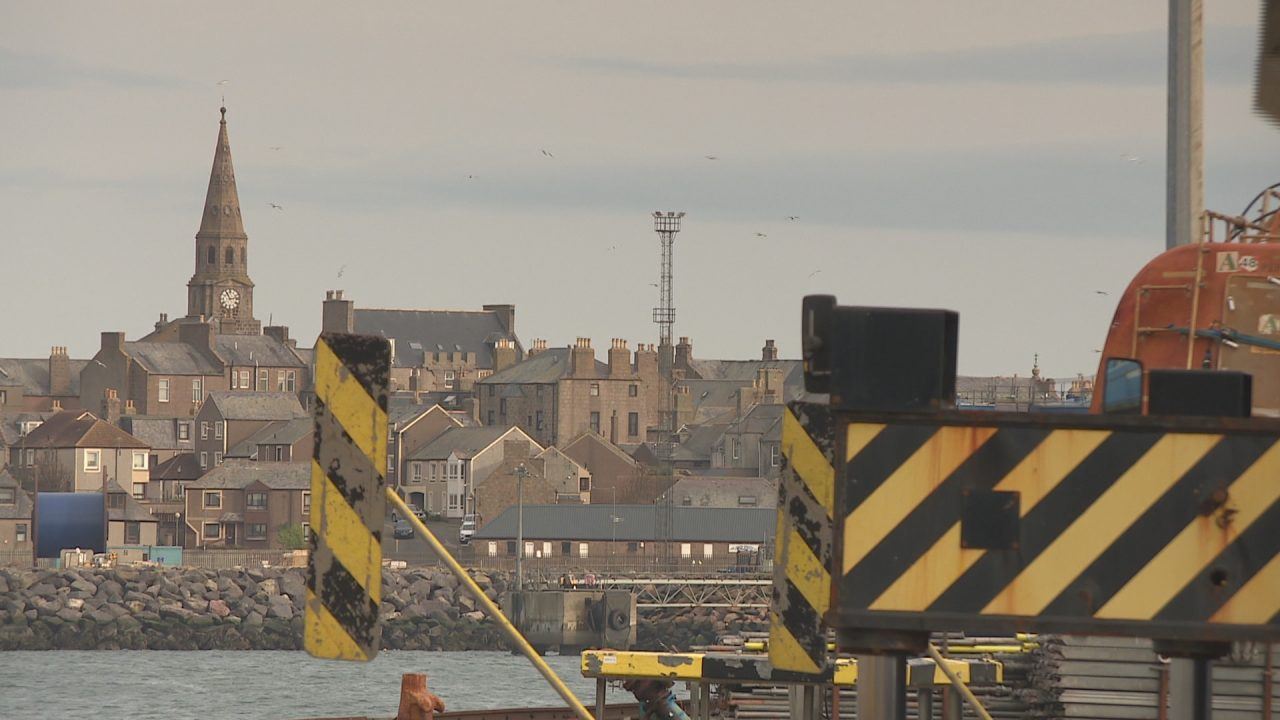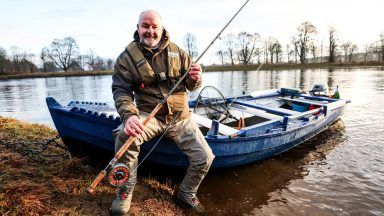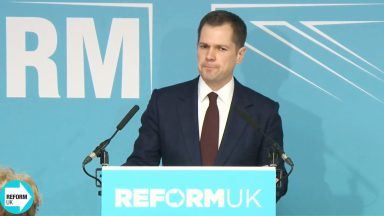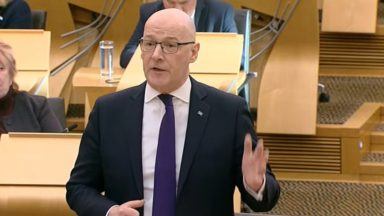Judging by the promises made by the new Labour government, a renewable energy gold rush is on the way – if that’s true, then Peterhead is the frontier boomtown that could benefit the most.
A green power revolution was one of Labour’s top election pledges, with billions of pounds of investment to be drummed up by a new, publicly-owned GB Energy company. Scotland has been told it can expect to be the biggest winner from the creation of tens of thousands of new jobs.
This port an hour north of Aberdeen has seen an energy boom before. Its economy was transformed by the discovery of North Sea oil and gas in the 1970s, although parts of the port itself were built long before that, by inmates at the notorious Peterhead prison.
It’s preparing to potentially be transformed again. ASCO is a Scottish company that operates globally, supplying logistics support to big energy projects. From its base at Peterhead port, that has mostly meant oil and gas until now. Increasingly, it will mean renewables.
ASCO and its partners have big ambitions to take advantage of the transition away from fossil fuels – plans that could totally reshape the port itself, and create whole new industries in this region. But CEO Mike Pettigrew sounded a warning when I spoke to him on the pierside, as an ASCO team loaded up a ship beside us.
“The volumes today are probably half of what they used to be,” he said. “Whilst the energy transition is a huge opportunity, it’s fair to say it hasn’t come on stream as fast as we all hoped… there has to be a strong overlap between the decline of oil and gas and the arrival of new energy, future fuels, and offshore wind. Because if there isn’t, the skills just won’t be there.”
Beyond the construction phase, renewable energy is much less labour intensive than fossil fuels. Meanwhile, the new Labour government has ratcheted up taxes on oil and gas companies to help fill the hole in the public finances.
Of greatest concern to the sector are plans to remove investment allowances, which allow companies to write off a chunk of their obligations under the so-called windfall tax. The companies paying the tax – the actual oil and gas producers, rather than supply chain companies like ASCO – will still make big profits. They just won’t invest.
“It doesn’t take a genius to work out that if you tax an industry into oblivion, it’s going to curtail any investment in that industry, which means a premature decline,” said Pettigrew.
If that warning sounds extreme, consider the closure of the Grangemouth oil refinery, with the loss of hundreds of jobs. The UK Government says the plan is to give the site a new lease of life as a green energy hub – but so far that plan is a blank sheet of paper. Some of the technologies being spoken about as alternative employers for Scotland’s 100,000 oil and gas workforce are barely off the drawing board.
All in all, it means there’s still uncertainty about whether the plan the UK Government is executing will really mean more economic growth for Scotland.
Economic growth is what Labour’s first budget in 15 years is supposed to be all about. With the public finances so badly stretched, encouraging growth is the only reliable way of generating more cash for the Treasury – to invest in the UK’s struggling public services.
Nine out of ten oil and gas jobs are in the supply chain – that includes workers at Three60 Energy in Dundee. They produce components for oil and gas and the aerospace sector, and their parent company is also expanding its work in renewables. The company is growing, investing £1m in new machines and adding jobs.
It’s exactly the kind of thing the UK Government wants to see. But there’s a wrinkle here, too – these are skilled jobs, and those skills take effort to build up. I met three current and former apprentices at Three60 Energy, who began their training as students at Dundee & Angus College.
The college’s engineering department is crucial to producing the skills needed if the UK is going to achieve its energy transition plan, with good jobs based in this country, like the ones at Three60. The college itself hopes to grow and invest by redeveloping its main Dundee Kingsway campus, which dates back to the 1960s.
But those plans have hit a hurdle – the last UK Government pledged £5m towards those plans, as part of its Levelling Up Fund. That’s one of dozens of projects across Scotland and the UK now under review, as Rachel Reeves tries to cut costs.
College principal Simon Hewitt tells me he’ll push ahead any way he can. “There are so many tough decisions the Chancellor will have to make,” he tells me. “The important thing for me is to recognise, ‘how do we stimulate growth’?”
Growth can come in different shapes and sizes. In Aberdeen, I visited SugarBird Wines – sadly, not to sample its goods but to speak to its owner, Alex Grahame. His first site was Aberdeen’s first-ever wine bar, and we chatted in a sleek new outpost opened a year ago overlooking the city’s Union Terrace Gardens.
It’s as good as confirmed that the Chancellor will raise the national insurance bill for employers, and there could be an increase in alcohol duties, too. “Every time a Budget comes along, it’s the hospitality sector that gets hit first,” Alex tells me. “We can’t grow our businesses as we’d like to.”
It’s a conflicting picture – a range of companies and institutions that are growing and want to grow further, and a government that says it wants to support them to do so. But despite all the good intentions, those same businesses says government is also getting in their way.
Follow STV News on WhatsApp
Scan the QR code on your mobile device for all the latest news from around the country





























